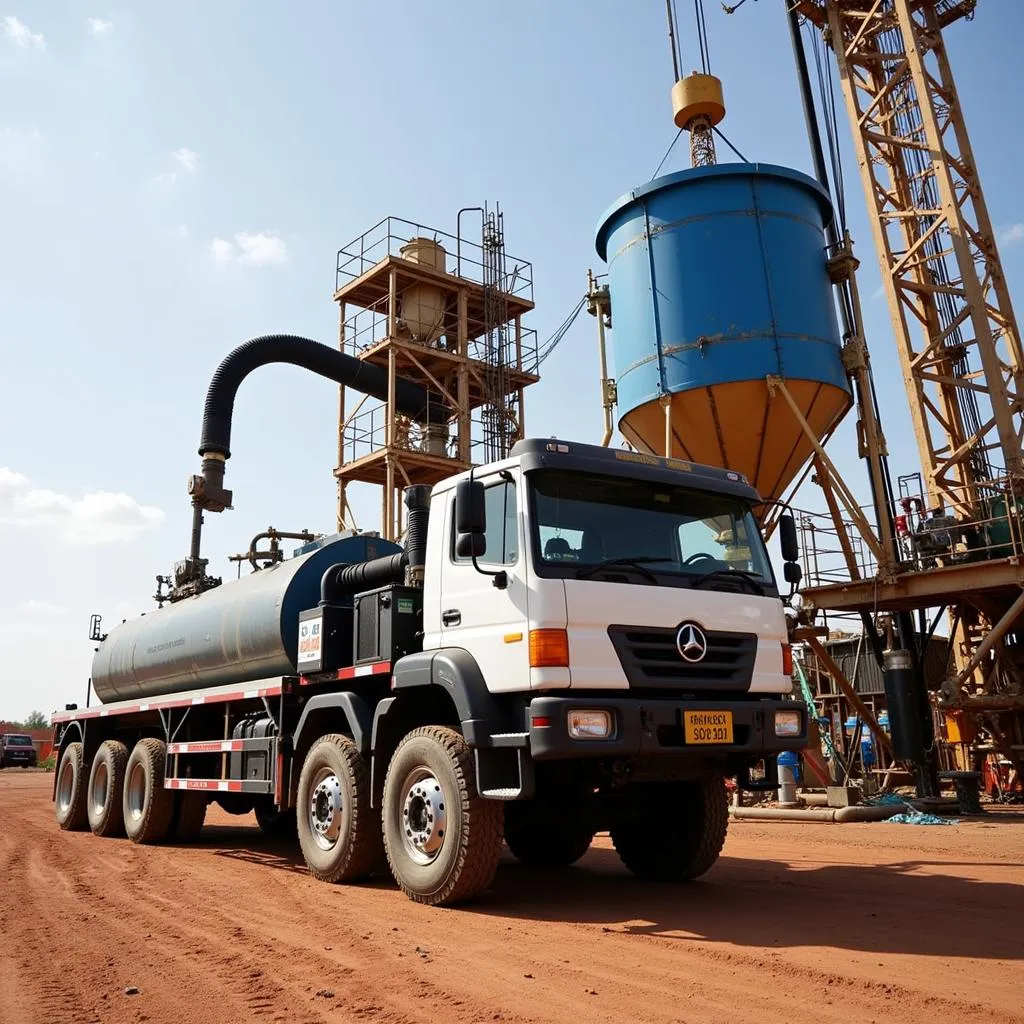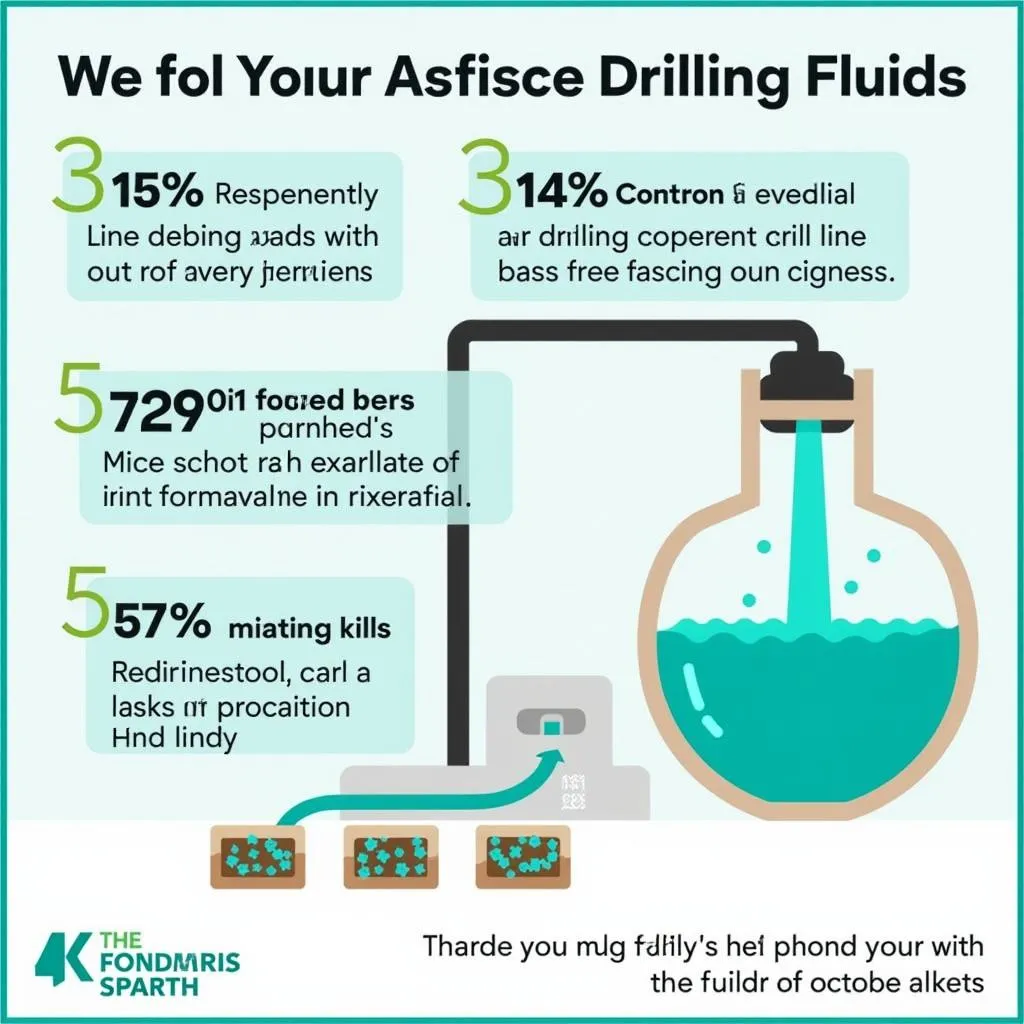Understanding African Drilling Fluids: A Comprehensive Guide
African Drilling Fluids play a critical role in the exploration and development of the continent’s vast natural resources. They are essential for successfully drilling oil and gas wells, as well as for various other geological and engineering projects. This comprehensive guide will delve into the intricacies of African drilling fluids, shedding light on their importance, types, applications, and the factors influencing their selection.
What are African Drilling Fluids?
Drilling fluids, often referred to as mud, are engineered fluids used in drilling operations. They are pumped down the drill string and into the wellbore, creating a circulation system that serves multiple purposes. In Africa, where drilling conditions can be diverse and challenging, understanding the properties and functions of drilling fluids is paramount for efficient and safe operations.
The Importance of African Drilling Fluids
Enhancing Wellbore Stability
African drilling fluids are crucial for maintaining wellbore stability during drilling. They help control formation pressures, prevent wellbore collapse, and minimize the risk of wellbore instability, particularly in areas with challenging geological formations.
Optimizing Drilling Performance
These fluids facilitate efficient drilling by:
- Lubricating and cooling the drill bit: Reducing friction and wear, extending the bit’s lifespan.
- Removing cuttings: Ensuring effective removal of rock debris from the wellbore, preventing clogging and maintaining drilling efficiency.
- Carrying weight: Maintaining proper downhole pressure to prevent formation fluid influx and optimize drilling operations.
Environmental Protection
African drilling fluids are engineered with environmental considerations in mind. They are formulated to minimize environmental impact, ensuring responsible resource extraction practices.
Types of African Drilling Fluids
Water-Based Mud
The most common type of drilling fluid, water-based mud, is a suspension of water, clay, and other additives. It’s versatile and cost-effective, suitable for various drilling conditions.
Oil-Based Mud
Oil-based mud, composed of oil and additives, provides excellent lubricity and shale inhibition. It’s often preferred in areas with challenging shale formations and high temperatures.
Synthetic-Based Mud
Synthetic-based mud is a relatively new technology, offering superior performance in terms of lubricity, shale inhibition, and environmental compatibility.
Factors Influencing the Choice of African Drilling Fluids
The selection of the right drilling fluid depends on various factors:
- Geological Formation: The type of rock formations encountered dictates the fluid’s density, viscosity, and chemical properties.
- Drilling Depth: Deeper wells require fluids with higher density and better temperature resistance.
- Temperature: High-temperature formations necessitate fluids with superior thermal stability and minimal degradation.
- Environmental Regulations: Local regulations and environmental considerations play a significant role in fluid selection.
Challenges and Innovations in African Drilling Fluids
“African drilling fluids face unique challenges due to the continent’s diverse geological formations and climate,” says Dr. Kweku Agyeman, a renowned geoscientist specializing in African oil and gas exploration.
High-Temperature Drilling
Developing drilling fluids that withstand high temperatures is critical for efficient and safe operations in regions with geothermal activity.
Shale Inhibition
Shale formations pose significant challenges due to their tendency to swell and fracture. Innovative fluids are being developed to effectively inhibit shale while maintaining drilling performance.
Environmental Sustainability
Efforts are underway to develop environmentally friendly drilling fluids that minimize the environmental impact of oil and gas exploration.
Conclusion
African drilling fluids are essential for the successful development of the continent’s vast oil and gas resources. Their role in wellbore stability, drilling performance, and environmental protection is paramount. The industry continues to innovate, developing advanced fluids that address the unique challenges posed by African drilling environments. As we move forward, understanding and leveraging the potential of African drilling fluids will be crucial for sustainable and responsible resource development.
FAQ
1. What are the key differences between water-based and oil-based drilling fluids?
Water-based mud is typically cheaper and more environmentally friendly, but oil-based mud offers better lubricity and shale inhibition.
2. How do African drilling fluids contribute to environmental protection?
Modern drilling fluids are designed to minimize environmental impact by reducing waste generation, minimizing chemical contamination, and promoting responsible resource extraction.
3. What are some innovative technologies being developed for African drilling fluids?
Researchers are focusing on developing fluids that are environmentally friendly, high-temperature resistant, and offer better shale inhibition capabilities.
4. What are the future prospects for African drilling fluids?
The demand for drilling fluids in Africa is expected to grow significantly as the continent’s oil and gas industry expands. Continued innovation and technological advancements will be crucial for meeting this demand.
5. What are the challenges to the implementation of African drilling fluids?
The implementation of drilling fluids in Africa faces challenges related to the diverse geological formations, climate conditions, and regulatory frameworks.
6. What is the impact of African drilling fluids on the local economy?
The use of drilling fluids generates employment opportunities, boosts local economies, and contributes to the growth of the oil and gas sector.
7. What are the best practices for the management and disposal of drilling fluids in Africa?
Best practices include minimizing waste generation, responsibly disposing of used fluids, and utilizing technologies for fluid recycling and reuse.
 African Drilling Fluids Equipment in Action
African Drilling Fluids Equipment in Action
 Research and Development of African Drilling Fluids
Research and Development of African Drilling Fluids
 Environmental Impact of African Drilling Fluids
Environmental Impact of African Drilling Fluids
This article provides a comprehensive overview of African drilling fluids, outlining their significance, types, and applications. It also highlights the challenges and innovations in this critical sector. For further information or assistance, contact us at +255768904061, [email protected] or visit us at Mbarali DC Mawindi, Kangaga, Tanzania. We have a dedicated customer support team available 24/7 to assist you with your inquiries.

